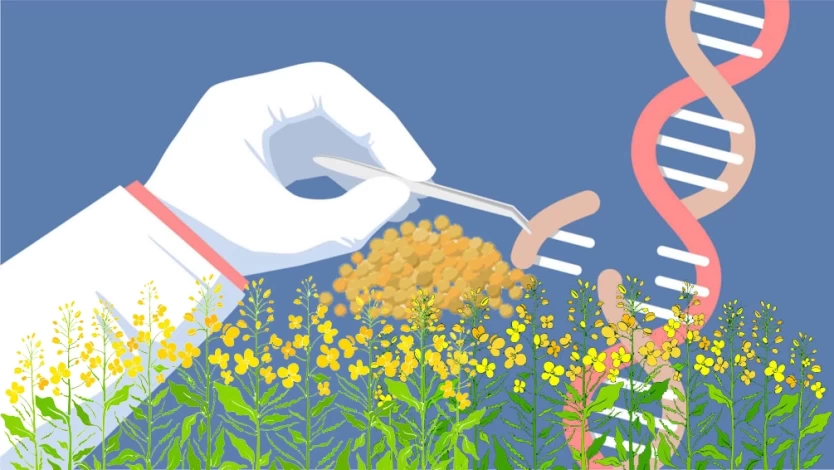
File Photo
Whether India — the world’s second-largest producer of staples like rice and wheat as well as fruits and vegetables — finally switches to genetically modified (GM) food crops hinges on litigation currently being fought in the country’s supreme court to prevent the commercial release of GM mustard.
So far, India has restricted GM technology to cotton, a non-food crop. Attempts to introduce a GM variety of aubergine — or eggplant — were scotched in 2010, following negative feedback from nationwide public consultations with farmers’ groups and stakeholders held by the then environment minister, Jairam Ramesh.
Now, 12 years later, the regulatory body, the Genetic Engineering Appraisal Committee (GEAC), has approved the environmental release of GM mustard, raising a storm of protests from scientists, doctors, environmental activists, legislators and litigants. The protestors alleged that the GEAC approvals were based on inadequate tests for impacts on public health and the environment.
On 23 December the government issued a statement supporting GM technology, highlighting the need for increased yields, and warned of administrative procedures against any opinion or article published on the subject by anyone not authorized, or former staff of the Indian Council of Agricultural Research, that is different from the stated documentation and decisions made by the regulatory authorities that are not endorsed by the council.
Earlier, a mass petition by medical professionals claimed that GM mustard was environmentally hazardous because it is genetically engineered to be tolerant to glufosinate, a herbicide that could be absorbed as toxic chemical residues by crops and passed on to consumers.
Herbicide-tolerant genes allow GM crops to survive spraying with herbicides designed to clear weeds but end up destroying other plants, including food crops and fodder, with serious implications for crop diversity, the petition said. GM mustard involves genetic modification with the Bar, Barnase and Barstar genes, originating from two strains of bacteria.
The GEAC approval nixed earlier recommendations of three high-level expert committees that warned against the use of herbicide-tolerant crops in Indian conditions. These were the 2013 report of a Technical Expert Committee appointed by the Supreme Court and reports by two parliamentary committees, one presented in 2014 and the other in 2017.
For instance, the 2017 parliamentary committee said it was “of the considered view that, given the topography of our country and its diversity, it is imperative that the government agencies should come up with indigenous studies to substantiate their claim that there is no threat posed to our environment on account of GM crops”.
The committee said that it “understood that GM crops do impact unintended organisms including beneficial organisms like bees and butterflies” and that the impact is “related to both the genetic engineering process as well as by accompanying agricultural practices in terms of use of pesticides and herbicides on GM crops and GM seeds”.
On the issue of gene transfer to non-GM crops, the committee said cross-pollination and contamination of non-GM crops have the potential to destroy traditional and organic crops and noted that “the Ministry of Agriculture and Farmers Welfare has accepted that a herbicide-tolerant gene may escape through pollen into nearby farms and fields, to other GM or non-GM cultivars or to a wild and weedy relative”.
After questions were raised in parliament on the new approvals, the union minister of state for science, Jitendra Singh, said, in a written response on 8 December that extensive studies carried out during field trials and environmental safety studies had “provided evidence that GM mustard lines were safe for cultivation and for food and feed use”.
Singh said in his response that the use of the ‘Bar’ gene, responsible for conferring herbicide tolerance on GM mustard, had been approved by the GEAC solely to maintain genetic purity during hybrid seed production and was not meant for commercial cultivation by farmers.
Source:
Online/GFMM
Comment Now